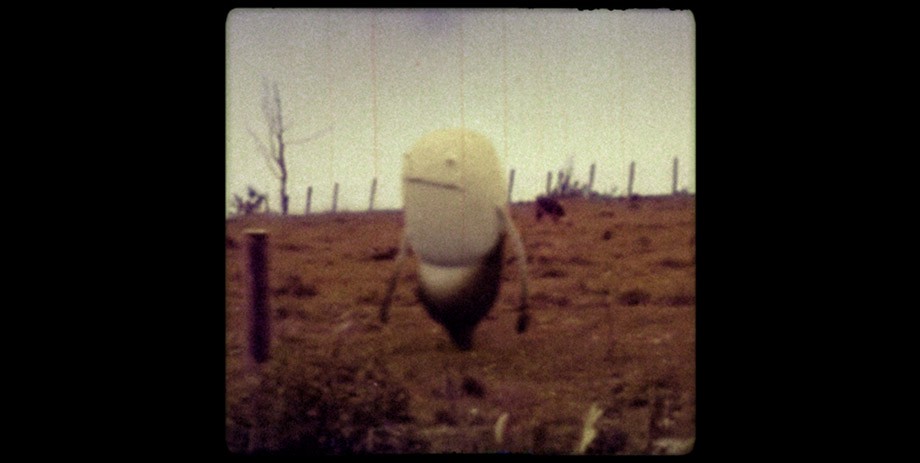Johanne Ste-Marie is a Montreal native who dove head first
into the burning ring of animation after graduating with a BFA in Film
Animation from Concordia University. In 2002, she formed an art duo, Fluorescent
Hill, consisting of herself and Mark Lomond. They have been collaborating on a
variety on internationally acclaimed music videos, commercials, short films, and
design projects ever since. (Press materials)
Migration is a 6-minute digital animation short that traces the journey of a whale-like herd as they wander through towns, fields and forests seeking refuge in the sea. It will play at TIFF on September 11 and 12. (TIFF official site)
WaH: Please give us
your description of the film playing at TIFF.
JSM: Migration is a sort of a vintage nature-film
meets home movie meets sci-fi fantasy tale. It feels nostalgic and quite
dream-like, yet it could also be seen as a quasi-documentary, even though it’s
half animated.
WaH: What drew you to
this story?
JSM: What drew us to make the film was the need to
tell a story with a range of emotions that used only visual narrative and no
dialogue. The film is inspired by a few different things, one being [the Canadian nature show] Lorne
Greene’s New Wilderness. Also the
Patterson/Gimlin Bigfoot film and an old Disney nature documentary, White Wilderness, where
“suicidal” lemmings supposedly throw themselves off a cliff as part
of their circle of life.
WaH: What was the
biggest challenge in making the film?
JSM: Making a film without dialogue and not having
the characters over-act to get emotion across was a challenge. You want the
audience to connect with the creature despite never hearing it speak. We wanted
to avoid any kind of pantomime that a lot of animated films have. Technical
things like integrating CG into deteriorated film stock also posed a few
challenges.
WaH: What do you want
people to think about when they are leaving the theatre?
JSM: I’d love it if they question what happens
next. It’s interesting how people project onto the character their own
resolutions. We often have people ask us what the character does at the end or
why he does certain things. I hope that need-to-know stays with them for some time, and they continue to question it and think about it.
WaH: What advice do
you have for other female directors?
JSM: Learn as much as possible about all aspects of
filmmaking, whether it be lighting, design, producing or any
other role. There’s not necessarily a need to be an expert on everything, or to
do everything one’s self, but being able to understand the tasks at hand and the challenges of the people you work with is always appreciated by the team/crew.
WaH: What’s the
biggest misconception about you and your work?
JSM: Since I work in a directing duo, I think some
people assume we take on different roles from each other. The reality is that
we work very collaboratively in both the creative process and in production.
WaH: How did you get your film funded?
JSM: I received a grant from The Canada Council for
the Arts, which allowed us to explore a lot of ways of achieving the desired
effect we wanted with this film. But it took us longer than expected, so we
ended up contributing quite a bit of the cost ourselves. For the most part, it was just myself and my Fluorescent Hill partner Mark Lomond. We had an intern who
worked on one scene and a good friend who did some initial 2D animation tests
before we went with CG. Other than that, it was just the two of us locked in our
studio, plugging away at animating and compositing for a few months.
WaH: Name your
favorite woman-directed film and why.
JSM:
I’m a fan of Alison Maclean’s Jesus’ Son.
She crafted such a beautifully melancholic and poignant film. The performances
were wonderful and the blend of tragedy and humor was one of the things I
really appreciated.







